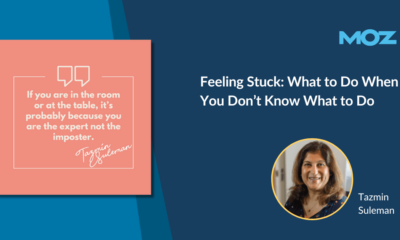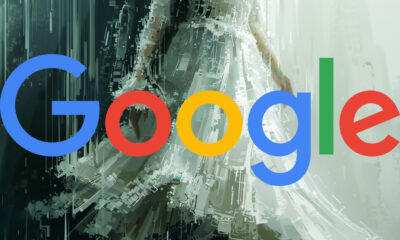PPC trends to look out for in 2020
For PPC advertisers, 2020 is going to be a pivotal year. Technology will be driving all the key PPC trends at the start of the decade and advertisers are going to react to this in one of two ways.
Some are going to sit back and wait for the technology to progress. Others will take the tech available to them right now, grab it by the horns and use it to drive innovation on their own terms. These are the advertisers who will be setting PPC trends in 2020 and beyond, while the rest play catch-up.
Here’s what matters most for the year ahead:
Taking control of PPC automation
Marketing automation has progressed a lot in recent years and we can now rely on software to handle a wide range of repetitive tasks. This isn’t specific to PPC but paid advertising arguably has the most to gain from automation due to the time-consuming nature of managing and optimising campaigns.
Google Ads has introduced a string of automated features recently, including smart campaigns, smart shopping campaigns, Dynamic Search Ads and a growing list of automated bidding strategies.
Google Ads has even been pushing advertisers to let it manage campaigns for them.
Well this is new. @GoogleAds basically saying “we’re gonna start messing with your accounts in a week unless you explicitly say no.” pic.twitter.com/zShgxKH62i
— aaron levy (@bigalittlea) January 24, 2019
Advertisers need to decide how much they’re going to allow tech giants to automate their strategies. Keep in mind that Google’s priority is to maximise clicks, which is at odds with the aim of most advertisers. Thankfully, you don’t need to give PPC platforms a free license to manage your strategy. You can create your own automated workflows to optimise bids, budgets, marketing lists and a range of other key PPC performance tasks.
PPC automation doesn’t necessarily mean surrendering control; 2020 is the year advertisers can take it back.
Artificial intelligence & machine learning become accessible
For the average business or advertiser, matching Google’s data-driven ability to automate might sound crazy. And, until recently, it would have been. However, artificial intelligence and machine learning are now accessible to everyone, which means advertisers can build their own algorithms to automate highly specific tasks on their own terms.
Instead of relying on generic automations, built for the masses by the likes of Google, it’s never been easier to address the specific needs of your own advertising goals.
Are your sales affected by weather patterns? Then, you can automate bids to match the weather conditions in each of your target locations, all in real-time. Are your remarketing campaigns failing to engage with B2B leads over weekends when their mind isn’t on work? Then, automate a delay on remarketing campaigns triggered by site visits on Fridays and public holidays.
Rising CPCs in Google Ads
The unwelcome PPC trend for 2020 will be rising CPCs and this will be most evident on Google Search. With the SERPs becoming increasingly competitive and organic results falling further down the page, brands with big budgets will simply increase ad spend and this drives up the cost for everyone.
Hello, higher CPCs.
More budget-conscious advertisers will need to spot new opportunities outside of simply increasing ad spend. This may involve analysing SERPs in real-time to find missed organic spaces, ploughing through campaign data to lost leads or using third-party data and AI to create predictive analytics models that can deliver more relevant messages.
Either way, the answer is going to lie in data science and technologies like AI and machine learning.
Rethinking your PPC platforms of choice
Moving away from the algorithmic side of technology, advertisers will also need to rethink their PPC platforms of choice in 2020. The obvious option for retailers is Amazon Ads, which offers a powerful addition (or alternative) to Google Shopping campaigns.
For local businesses, Google is also providing a new channel aimed at smaller businesses. Waze Local allows businesses to target drivers as they’re travelling through their immediate location – ideal for people on the move who need to teak a break from driving and make spontaneous purchases on the way home.
Quora Ads is making big progress in a number of areas, too – especially in the B2B, software and consumer electronics niches. Meanwhile, the big rising star of 2019 has been Chinese social media platform TikTok, which has just embarked on its own advertising adventure that could give the likes of Facebook and Instagram a lot to think about – one to watch for 2020.
Meanwhile, Facebook’s reduction in News Feed ads will likely push more consumer brands over to Instagram and B2B advertisers in search of other options.
Callum Coard, PPC specialist at Vertical Leap.
AI
Exploring the Evolution of Language Translation: A Comparative Analysis of AI Chatbots and Google Translate

According to an article on PCMag, while Google Translate makes translating sentences into over 100 languages easy, regular users acknowledge that there’s still room for improvement.
In theory, large language models (LLMs) such as ChatGPT are expected to bring about a new era in language translation. These models consume vast amounts of text-based training data and real-time feedback from users worldwide, enabling them to quickly learn to generate coherent, human-like sentences in a wide range of languages.
However, despite the anticipation that ChatGPT would revolutionize translation, previous experiences have shown that such expectations are often inaccurate, posing challenges for translation accuracy. To put these claims to the test, PCMag conducted a blind test, asking fluent speakers of eight non-English languages to evaluate the translation results from various AI services.
The test compared ChatGPT (both the free and paid versions) to Google Translate, as well as to other competing chatbots such as Microsoft Copilot and Google Gemini. The evaluation involved comparing the translation quality for two test paragraphs across different languages, including Polish, French, Korean, Spanish, Arabic, Tagalog, and Amharic.
In the first test conducted in June 2023, participants consistently favored AI chatbots over Google Translate. ChatGPT, Google Bard (now Gemini), and Microsoft Bing outperformed Google Translate, with ChatGPT receiving the highest praise. ChatGPT demonstrated superior performance in converting colloquialisms, while Google Translate often provided literal translations that lacked cultural nuance.
For instance, ChatGPT accurately translated colloquial expressions like “blow off steam,” whereas Google Translate produced more literal translations that failed to resonate across cultures. Participants appreciated ChatGPT’s ability to maintain consistent levels of formality and its consideration of gender options in translations.
The success of AI chatbots like ChatGPT can be attributed to reinforcement learning with human feedback (RLHF), which allows these models to learn from human preferences and produce culturally appropriate translations, particularly for non-native speakers. However, it’s essential to note that while AI chatbots outperformed Google Translate, they still had limitations and occasional inaccuracies.
In a subsequent test, PCMag evaluated different versions of ChatGPT, including the free and paid versions, as well as language-specific AI agents from OpenAI’s GPTStore. The paid version of ChatGPT, known as ChatGPT Plus, consistently delivered the best translations across various languages. However, Google Translate also showed improvement, performing surprisingly well compared to previous tests.
Overall, while ChatGPT Plus emerged as the preferred choice for translation, Google Translate demonstrated notable improvement, challenging the notion that AI chatbots are always superior to traditional translation tools.
Source: https://www.pcmag.com/articles/google-translate-vs-chatgpt-which-is-the-best-language-translator
Google Implements Stricter Guidelines for Mass Email Senders to Gmail Users

Beginning in April, Gmail senders bombarding users with unwanted mass emails will encounter a surge in message rejections unless they comply with the freshly minted Gmail email sender protocols, Google cautions.
Fresh Guidelines for Dispatching Mass Emails to Gmail Inboxes In an elucidative piece featured on Forbes, it was highlighted that novel regulations are being ushered in to shield Gmail users from the deluge of unsolicited mass emails. Initially, there were reports surfacing about certain marketers receiving error notifications pertaining to messages dispatched to Gmail accounts. Nonetheless, a Google representative clarified that these specific errors, denoted as 550-5.7.56, weren’t novel but rather stemmed from existing authentication prerequisites.
Moreover, Google has verified that commencing from April, they will initiate “the rejection of a portion of non-compliant email traffic, progressively escalating the rejection rate over time.” Google elaborates that, for instance, if 75% of the traffic adheres to the new email sender authentication criteria, then a portion of the remaining non-conforming 25% will face rejection. The exact proportion remains undisclosed. Google does assert that the implementation of the new regulations will be executed in a “step-by-step fashion.”
This cautious and methodical strategy seems to have already kicked off, with transient errors affecting a “fraction of their non-compliant email traffic” coming into play this month. Additionally, Google stipulates that bulk senders will be granted until June 1 to integrate “one-click unsubscribe” in all commercial or promotional correspondence.
Exclusively Personal Gmail Accounts Subject to Rejection These alterations exclusively affect bulk emails dispatched to personal Gmail accounts. Entities sending out mass emails, specifically those transmitting a minimum of 5,000 messages daily to Gmail accounts, will be mandated to authenticate outgoing emails and “refrain from dispatching unsolicited emails.” The 5,000 message threshold is tabulated based on emails transmitted from the same principal domain, irrespective of the employment of subdomains. Once the threshold is met, the domain is categorized as a permanent bulk sender.
These guidelines do not extend to communications directed at Google Workspace accounts, although all senders, including those utilizing Google Workspace, are required to adhere to the updated criteria.
Augmented Security and Enhanced Oversight for Gmail Users A Google spokesperson emphasized that these requisites are being rolled out to “fortify sender-side security and augment user control over inbox contents even further.” For the recipient, this translates to heightened trust in the authenticity of the email sender, thus mitigating the risk of falling prey to phishing attempts, a tactic frequently exploited by malevolent entities capitalizing on authentication vulnerabilities. “If anything,” the spokesperson concludes, “meeting these stipulations should facilitate senders in reaching their intended recipients more efficiently, with reduced risks of spoofing and hijacking by malicious actors.”
Google’s Next-Gen AI Chatbot, Gemini, Faces Delays: What to Expect When It Finally Launches

In an unexpected turn of events, Google has chosen to postpone the much-anticipated debut of its revolutionary generative AI model, Gemini. Initially poised to make waves this week, the unveiling has now been rescheduled for early next year, specifically in January.
Gemini is set to redefine the landscape of conversational AI, representing Google’s most potent endeavor in this domain to date. Positioned as a multimodal AI chatbot, Gemini boasts the capability to process diverse data types. This includes a unique proficiency in comprehending and generating text, images, and various content formats, even going so far as to create an entire website based on a combination of sketches and written descriptions.
Originally, Google had planned an elaborate series of launch events spanning California, New York, and Washington. Regrettably, these events have been canceled due to concerns about Gemini’s responsiveness to non-English prompts. According to anonymous sources cited by The Information, Google’s Chief Executive, Sundar Pichai, personally decided to postpone the launch, acknowledging the importance of global support as a key feature of Gemini’s capabilities.
Gemini is expected to surpass the renowned ChatGPT, powered by OpenAI’s GPT-4 model, and preliminary private tests have shown promising results. Fueled by significantly enhanced computing power, Gemini has outperformed GPT-4, particularly in FLOPS (Floating Point Operations Per Second), owing to its access to a multitude of high-end AI accelerators through the Google Cloud platform.
SemiAnalysis, a research firm affiliated with Substack Inc., expressed in an August blog post that Gemini appears poised to “blow OpenAI’s model out of the water.” The extensive compute power at Google’s disposal has evidently contributed to Gemini’s superior performance.
Google’s Vice President and Manager of Bard and Google Assistant, Sissie Hsiao, offered insights into Gemini’s capabilities, citing examples like generating novel images in response to specific requests, such as illustrating the steps to ice a three-layer cake.
While Google’s current generative AI offering, Bard, has showcased noteworthy accomplishments, it has struggled to achieve the same level of consumer awareness as ChatGPT. Gemini, with its unparalleled capabilities, is expected to be a game-changer, demonstrating impressive multimodal functionalities never seen before.
During the initial announcement at Google’s I/O developer conference in May, the company emphasized Gemini’s multimodal prowess and its developer-friendly nature. An application programming interface (API) is under development, allowing developers to seamlessly integrate Gemini into third-party applications.
As the world awaits the delayed unveiling of Gemini, the stakes are high, with Google aiming to revolutionize the AI landscape and solidify its position as a leader in generative artificial intelligence. The postponed launch only adds to the anticipation surrounding Gemini’s eventual debut in the coming year.
-

 WORDPRESS6 days ago
WORDPRESS6 days ago10 WordPress Influencers to Follow in 2024 – WordPress.com News
-

 MARKETING6 days ago
MARKETING6 days agoFeeling Stuck: What to Do When You Don’t Know What to Do
-

 SEARCHENGINES7 days ago
SEARCHENGINES7 days agoGoogle Image Search Adds Pixel Level Object Segmentation Animation
-

 PPC5 days ago
PPC5 days agoA History of Google AdWords and Google Ads: Revolutionizing Digital Advertising & Marketing Since 2000
-

 SEARCHENGINES6 days ago
SEARCHENGINES6 days agoMore Google March 2024 Core Update Ranking Volatility
-

 PPC5 days ago
PPC5 days agoCompetitor Monitoring: 7 ways to keep watch on the competition
-

 PPC5 days ago
PPC5 days ago31 Ready-to-Go Mother’s Day Messages for Social Media, Email, & More
-

 WORDPRESS6 days ago
WORDPRESS6 days agoThrive Architect vs Divi vs Elementor



You must be logged in to post a comment Login